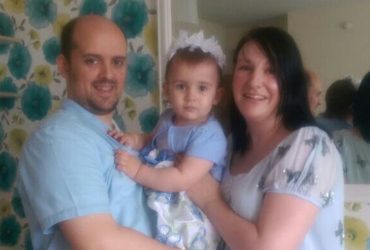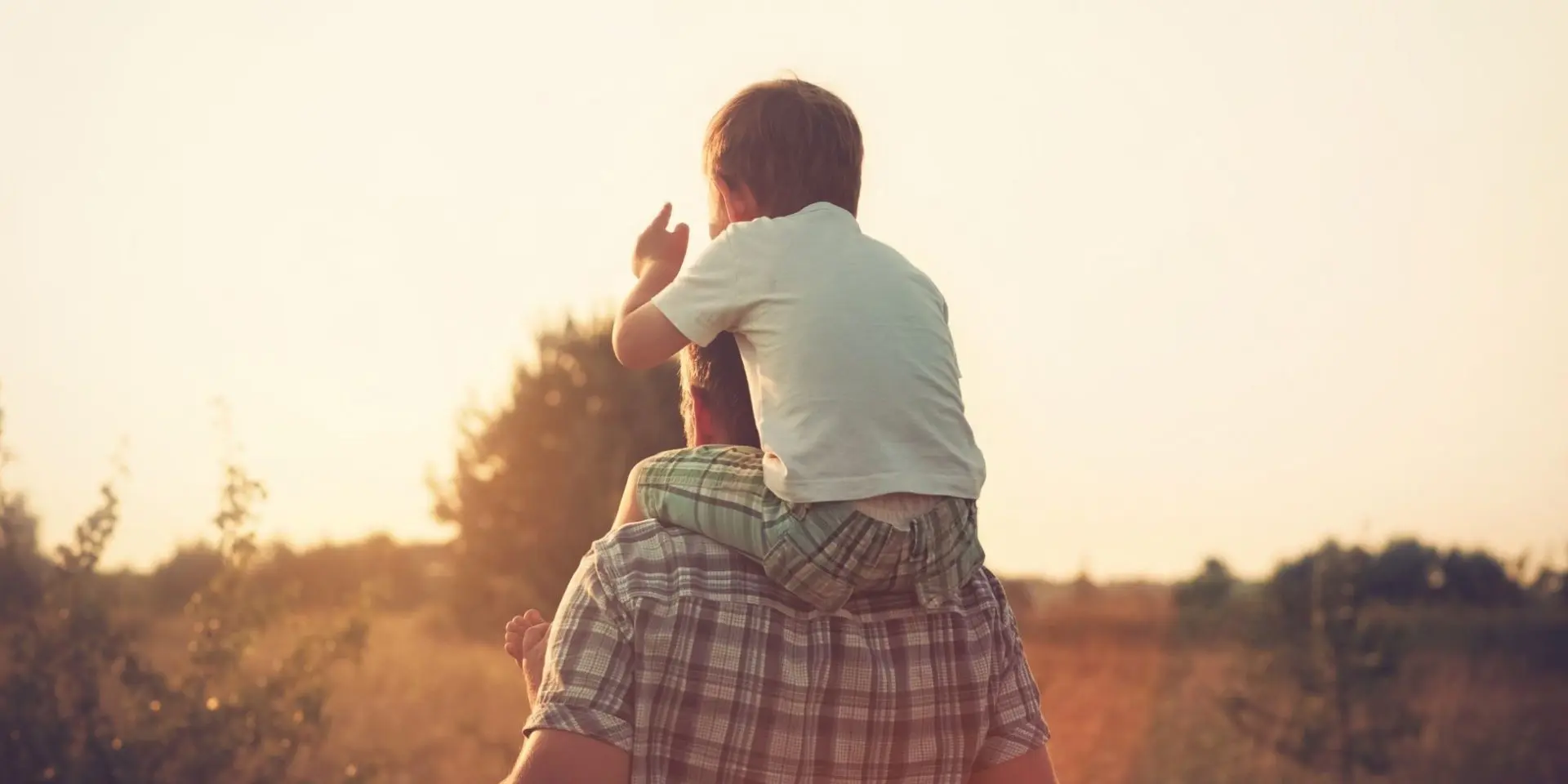To mark Children’s Grief Awareness Week, WAY Widowed and Young member Tim shares the story of how he has navigated the past four years as a widowed dad after his wife Laura died of breast cancer.
I met my wife, Laura, in 2007. It was just purely by chance that we met. We clicked from day one and got on really well and that’s the way it stayed all the way through. We married in 2011, and our son, Dominic, was born in 2016. We always operated as a team, sharing our strengths and weaknesses.
Our life changed dramatically when Laura was diagnosed with breast cancer in 2020 during lockdown. She went through chemotherapy and radiotherapy that year, and by 2021, she was given the all-clear. Everything was fine until the latter half of December 2021, when she started getting ill again. In mid-January, tests revealed the cancer had returned, and it was devastatingly quick; she passed away at the end of February.
One blessing we had, unlike families dealing with sudden deaths or accidents, was the time to deal with some things and say what needed to be said. It also gave me the opportunity to research how to talk to our son, Dominic, who was six at the time. As a data-driven person, I did a lot of research, and the advice I found, particularly from the child bereavement charity Winston’s Wish, has paid dividends right up to today when explaining to Dominic what was happening.
The very clear advice is: tell them the truth. Don’t mince it up, don’t try to soften it, and don’t speak in a childlike way. Tell them what’s happening. I stuck to that, pitching the truth in a way a six-year-old could understand.
We were very careful about the environment for these difficult conversations. I didn’t want Dominic to remember the hospital as a bad place. We managed to get Laura home, and she died there. Having the ‘Mummy’s dying’ conversation at home was probably the worst thing I’ve ever had to do – there’s no two ways about it. But we wanted Dominic to be as prepared as possible for adult life and ensure the trauma didn’t negatively affect him later on. And doing that at home was definitely the best environment.
Adapting to a new normal
Losing Laura meant losing my team member. I had to take on both roles (as mother and father) simultaneously, filling the gap left by things Laura did naturally, instinctively and without thinking. The first year was purely survival, focused on adapting and creating a new normal. It was about re-purposing our relationship as father and son, which has worked out really well; we are a team, and we look after each other.
The challenges were often in the small, day-to-day things. Laura was adventurous with cooking, whereas I had to go back to basics. Managing days out was a big change. I used to plan the logistics, and Laura would do all the prep, like the snacks and bags. Now my brain was full trying to remember everything she used to take care of.
In the early days of bereavement, I initially found that a lot of bereavement support was focused on older people, and I felt there was a big gap. I found WAY Widowed and Young online prior to Laura dying, and I knew I could turn to it if needed. I remember telling Laura about it and she was pleased there was support out there.
The WAY Facebook group has been incredibly helpful, especially in the early days, providing advice on challenges like those we faced at school. Sometimes, talking to other members of WAY is just a sounding board where you can vent and know that others understand exactly what you’re saying. Now that I am nearly four years into this journey, I find it quite therapeutic to help others who have just been widowed, sharing small pieces of useful advice.
I had the benefit of coming from a family where my wife, Laura, was a well-being practitioner for the NHS, so I understood how talking therapy could help. I had no qualms asking for help. I appreciate that, for many men, there is still that cliché and societal stigma that makes it difficult to do that.
The telephone counselling I received through my WAY membership was really helpful. It helped me understand that I had been through trauma because my life had completely changed. I realised that grief also changes your personality – I am not the same person I was four years ago. I was pushing up against these subconscious changes, assuming I was still the same person, which was causing me to feel tired and irritable. The therapy explained that these feelings were normal. It helped me stop trying to rush things and instead, letting life naturally settle.
The counselling also helped me reframe my situation. I sometimes bemoaned the fact that having a young child limited my freedom, but I’ve learned to reframe that thought: Dominic is my priority, and it’s a positive thing, not a negative one. My main goal is to get him to adulthood in the best possible shape.

Finding a way forward
I made the decision from day one not to shy away from talking about Laura. We always talk about her; photos are up around the house. This is part of carrying on her legacy. It allows Dominic to talk about her naturally when he wants to. I am very conscious that his memories will fade, simply because he was only six when she died, but I want him to always have those memories and photos to fall back on.
I try not to look too far into the future. I prefer to stay in the now rather than looking long term. But my key piece of advice to anyone starting this journey is that it doesn’t necessarily get better, but you learn to manage it better. Even if you feel you can’t cope right now, you will. I know in that first year I was in a really low place but I look back on that now and think, “Well, I’m not there anymore.” That’s just by putting one foot in front of the other…
Recently I’ve also been more conscious about doing exercise. I used to go to the gym quite a lot but I kind of slipped because I had to reorganise my life when Laura died. Now I go about two or three times a week and that’s been great to have that physical exercise and just get out and do something.
One of the things I’ve been building up to is going away on holiday. Dominic has never been on a plane but we have family in America so it’s a no brainer that we’ll end up visiting them. I couldn’t have thought about doing that a few years ago but now I’m in a much better place.
Tim’s advice for others
Don’t forget to ask for help. Don’t be awkward or ashamed to ask family or friends for childcare support; if they can’t do it, they will tell you. Finally, reflect on your achievements, no matter how mundane they seem. I always reflect back at the end of the day – I don’t do journalling, it’s just a verbal reflection of what’s happened during the day. Dealing with things and carrying on, without even realising it, are often the biggest achievements of all.

About WAY
The WAY Widowed and Young community offers a safe space to talk to other people (both with and without children) who understand how it feels to be widowed at a young age.
Find out how WAY can support you, if you’ve been widowed before your 51st birthday, at www.widowedandyoung.org.uk


Going back to school following a bereavement: Tips from widowed parents
Our friends at the charity WAY Widowed and Young offer their advice on how they’ve navigated the back-to-school routine with their children following a bereavement.

Navigating Father’s Day as a widowed dad: Gary’s story
To mark Father’s Day, we hear from Gary – a Trustee of our full circle partners at the charity WAY Widowed and Young – about how he has coped as a widowed dad raising his young daughter, Hannah, after the death of his wife Angela.


